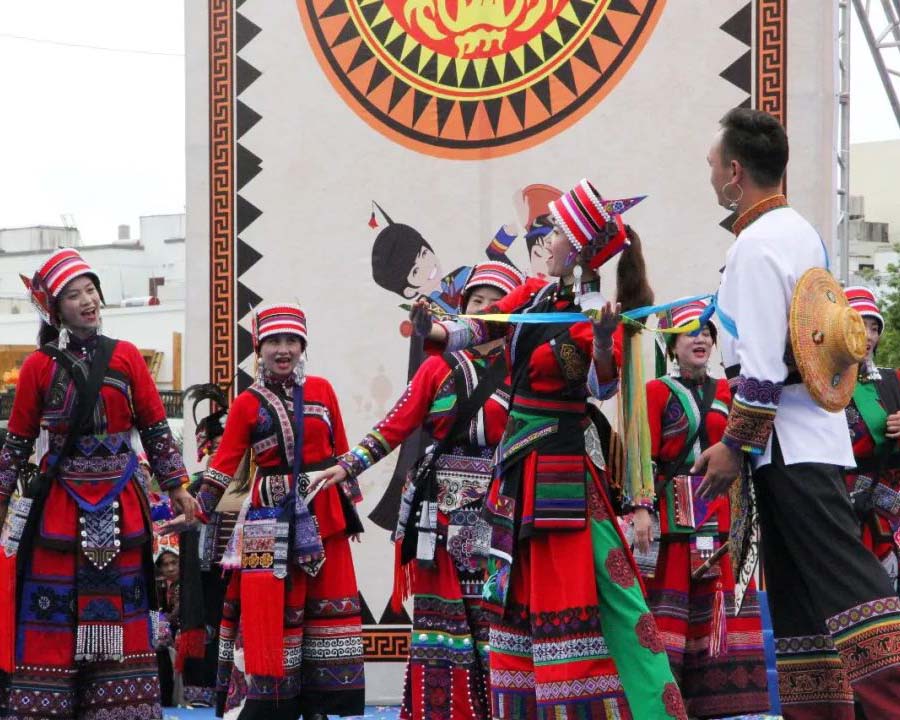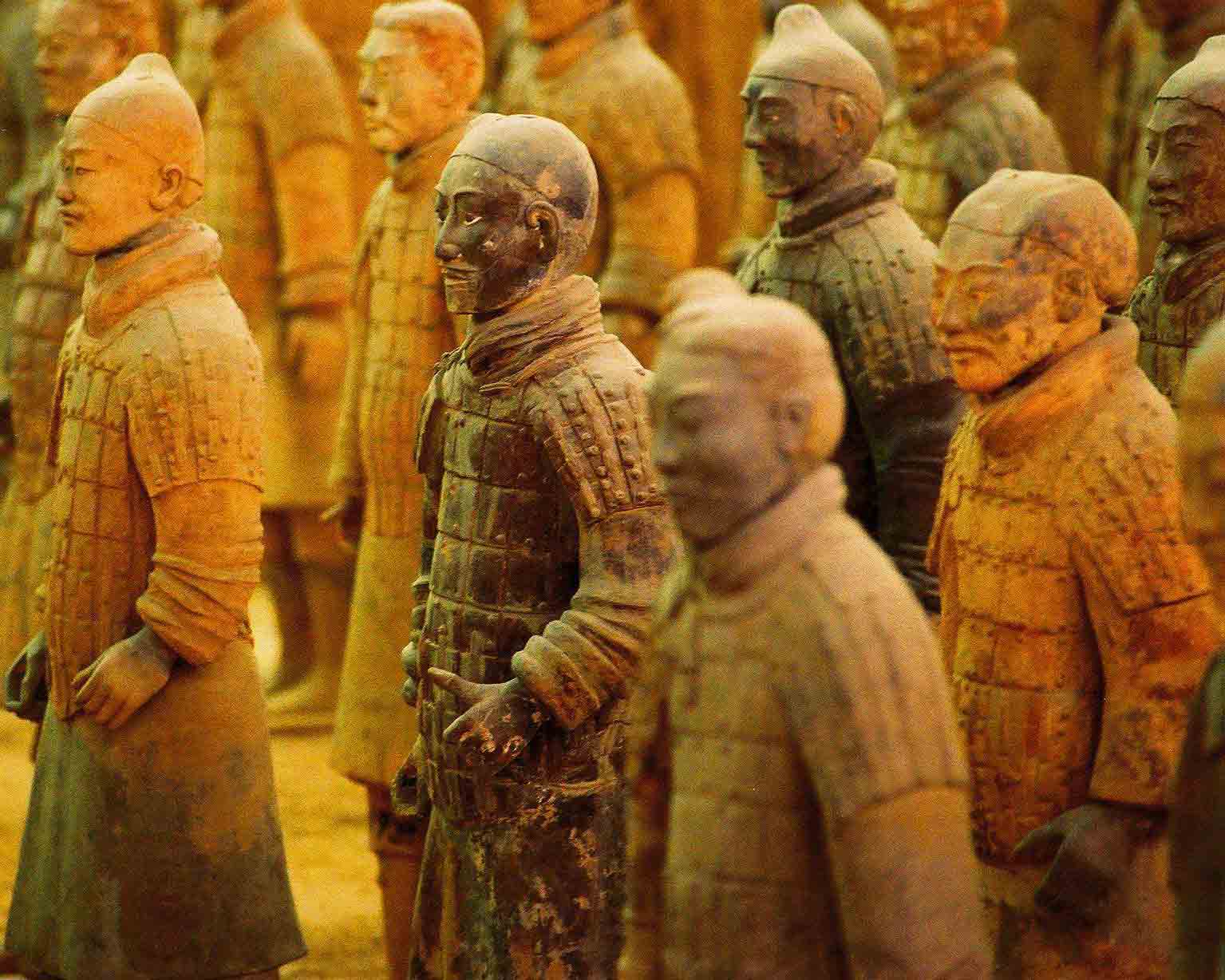

 marcopolo@chinatoursnet.com
marcopolo@chinatoursnet.com
Home / China Travel Guide / Chinese Element/ Detail

The Dragon Culture
The Silk Road
Beijing The Cultural Soul Of China
Nature Worship & Ancestor Worship
China's National Sport
Chinese weights&Measures
Secretive Twelve Chinese Zodiac Signs
Chinese Etiauette, a Nation of Etitwette
Chinese Names
Traditional Chinese Medicine
Peking University
Tsinghua University
The Four Great Inventions
The Dragon Culture(龙文化)
Chinese dragons are legendary creatures in Chinese mythology and folklore, with mythic counterparts among Japanese, Korean, Vietnamese, Bhutanese, Western and Turkic cultures. In Chinese art, dragons are typically portrayed as long, scaled, serpentine creatures with four legs In yin and yang terminology, a dragon is yang and complements a yin fenghuang(phenix).
In contrast to European dragons, which are considered evil, Chinese dragons traditionally symbolize potent and auspicious powers, particularly control over water, rainfall, hurricane, and floods. Dragon is also a symbol of power, strength,and good luck.
Historically, dragon was the symbol of the Emperor of China. In Zhou Dynasty, the5-clawed dragon was assigned to the Son of Heaven, the 4-clawed dragon to the Zhuhou (seigneurs), and the 3-clawed dragon to the Daifu chigh. In Qin Dynasty, the 5-clawed dragon was assigned to represent the Emperor while the 4-clawed and 3-clawed dragons were assigned to the commoners. The dragon in Qin Dynasty appeared on national flags.
The image of dragon is sometimes used in the West as a national emblem of China. However, this usage within both the People's Republic of China and the Republic of China on Taiwan as the symbol of the nation is not common. Instead, it is generally used as the symbol ofChinese culture. In Hong Kong, the dragon image is part of the design of Brand Hong Kong, a symbol used to promote Hong Kong as an international brand name.
In European-influenced cultures, dragon has aggressive,warlikee connotations and it is conjectured that the Chinese government wishes to avoid using it as a symbol, but most Chinese disagree with this decision. Westerners only sometimes confuse the disposition of the benevolent Chinese dragon with the aggressive Western dragon.
Many Chinese people often use the term "Descendants of the Dragon”(龙的传人)as a sign of their ethnic identity, as part of a trend that started in the 1970s when different Asian nationalities were lookirig for animal symbols for representations. The wolf was used among the Mongols, and the monkey among Tibetans.
In Chinese culture today, the dragon is mostly used for decorative purposes. It is a taboo to disfigure a depiction of a dragon. For example, an advertisement campaign commissioned by Nike, which featured the American basketball player LeBron James slaying a dragon (as well as beating up an old Kung Fu master), was immediately banned by the Chinese government after public outcry over disrespect.
Tianlong(天龙), celestial dragon that guards heavenly palaces and pulls divine chariots, also a name for Draco (constellation).
Shenlong(神龙), thunder god that controls the weather, appearance of a human head, dragon's body, and drum-like stomach.
Fucanglong(伏藏龙),underworld guardian of precious metals and jewels, associated with volcanoes.
Dilong(地龙, controller of rivers and seas; also a name for earthworm.
Yinglong(应龙), winged dragon associated with rains and floods, used by Huangdi to kill Chi You.
Jiaolong(蛟龙), hornless or scaled dragon, leader of all aquatic animals .
Panlong(蟠龙),lake dragon that has not ascended to heaven.
Huanglong(黄龙),hornless dragon symbolizing the emperor.
Feilong(飞龙), winged dragon that rides on clouds and mist; also a name for pterosaur (compare Feilong kick and Fei Long character).
Qinglong(青龙), the animal associated with the East in the Chinese Four Symbols, mythological creatures in the Chinese constellations.
Qiulong(虫T龙),contradictorily defined as both "horned dragon" and "hornless dragon".
Chilong(螭龙),a hornless dragon or mountain demon .
Got Question & Quick Answer

Welcome to your romantic honeymoon in China. Deluxe and romantic accommodations, considerate itinerary and unexpected surprises are all included on this tour. Explore both ancient cultures and enjoy a prosperous modern life. Your informative guides will show you around not only to the most classic spots, but also take you for a genuine local experience by visiting adorable giant pandas and local markets. Besides, the high-speed train from Beijing to Xian and cruise on Yangtze River will refresh yourself with new experience en route.
11-day Honeymoon China Tour to Beijing, Xian, Chongqing, Yangtze River and Shanghai

Trace the Chinese history from capital Beijing to Ancient Silk Road, absorb the ancient majesty of UNESCO World Heritages such as Great Wall, Forbidden City and Maogao Grottoes etc. Besides, the spectacular Gobi desert scenery will attract you to experience the power of nature as visiting the Zhangye Danxia landform and Yadan National Geological Park. Satisfy an appetite for authenticity with Peking roast duck and a gorgeous night show. Accompanied by a knowledgeable private guide, enjoy the freedom and flexibility of a private tour and receive the undivided attention.
12 Days Highlighted Silk Road China Tour from Beijing

Join this seven-day trip to the highlights of Dali, Lijiang and Kunming in Yunnan. Explore the UNESCO world heritage Stone Forest in Kunming. Admire the romantic of Erhai Lake, experience the Yan's Compound of Bai Minority in Xizhou Ancient Town, the tie-dying in Zhoucheng Village, Naxi Ancient Music and Dance Performance, Lijiang Old Town, Jade Dragon Snow Mountain, Baisha Village, and the Former Residence of Joseph Rock in Lijiang. You will get to know Yunnan well from your professional and friendly tour guide.
7 Days Kunming Dali Lijiang Tour

History has gone with the wind, but it left its traces all around these ancient hubs and you stand a chance to see it through the lanes, buildings, antique figures to find the past glories and immerse into the culture that breeds up Chinese people. This whole tour offers ancient culture and modern miracles in three important northern cities (Beijing, Xi'an and Shanxi) including top attractions: Tiananmen Square, Forbidden City, Mutianyu Great Wall, Shaanxi History Museum, Terracotta Warriors and Pingyao Ancient City among other highlights. Taking the high-speed train from Beijing to Pingyao and from Jiexiu to Xian will refresh your mind and gain you new insight on China. During the whole trip, you'll be accompanied by a knowledgeable tour guide, an experienced driver which bring you the most convenience.
10 Days Beijing, Xian, Shanxi All-inclusive China Tour in High-speed Train
